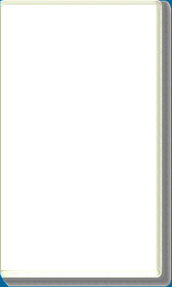Les enfants du paradis 1945
director: Marcel Carne
Genre
Country
France
Alternative Titles
- Children of Paradise
Cast
Pierre Brasseur Jean-Louis Barrault Arletty Marcel Herrand Fabien Loris Pierre Renoir Etienne Decroux Louis Salou Pierre Palau Maria Casares Jane Marken Robert Dhery
Synopsis
The word masterpiece is often used but seldom justified in the cinema. Marcel Carne's Les Enfants du Paradis is one of the few films that warrants this accolade. Moreover, it is something of a miracle that this film was made at all. It was produced under fraught circumstances during the German occupation and filming was halted several times. It's believed that members of the French Resistance took part in the immense crowd scenes, which provided good cover for them. When it was finally shown in 1945 it was a revelation: a stunning romantic spectacle set in the nineteenth century Paris of Louis Philippe, brimming with energy and vitality. In Jacques Prevert's superbly cinematic screenplay, the 'children of paradise' are the colourful inhabitants of the boulevards of the time - pick-pockets, artists, cut-throats, writers, thieves, beggars, soldiers of fortune. At night they sit in the 'gods' in the Funambules Theatre to abuse or cheer along the characters on the stage. The plot concentrates on the lives and dreams of a small band of bohemian actors. The exquisite Arletty, with her expressive eyes, is the woman who is loved by many men but remains true in her heart to only one. Her presence is the still centre of the swirling narrative in which Pierre Brasseur, as an ambitious young actor, and Jean-Louis Barrault, the eternal pagliacci clown, give bravura performances. The first half of the film deals with the squalid poverty stricken struggle for existence in the slums; the second half follows the heroine into high society when she marries a wealthy count. But throughout, despite a poignant ending, it maintains an exhilarating zest for life, tinged with its director's fatalism and heightened by Roger Hubert's dazzling photography. Les Enfants du Paradis has survived all the fads and fashions in films, from neo-realism to surrealist melodrama, and is now acknowledged as a timeless classic.
Formats


Average User Rating: 1 Vote(s)
 |
 |
 |
 |
 |
 |
 |
 |
 |
 |
 |
 Not Available | Purchase this movie on DVD! |  Amazon UK |
| Distributor | Thorn EMI |
| Catalogue Number | TVE 900825 2 |
| Release Series | |
| Release Date | January 1983 |
| Duration: | |
| Printed Classification | |
| Notes |
User Reviews:

